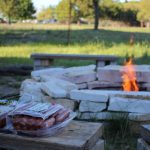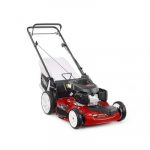Many of you probably remember the Love Canal disaster. Love Canal is a neighborhood of homes in Niagara Falls, New York that was constructed over a landfill. It was discovered that the property was massively polluted and was ultimately shutdown and evacuated. The state and federal governments paid $15 million to purchase 400 homes and some had to be demolished as a result of the contamination. It took the U.S. Environmental Protection Agency (EPA) more than 20 years to clean the site so that it could be lived on again.

(Courtesy: Sameer Gharat at flickr.com)
Of course, this is an extreme example of soil contamination. Still, there are properties in the United States that may have a minimal amount of contamination that does not threaten human or animal life, but could endanger plant life.
Contaminants that could appear in a city or suburban gardens include lead, which is used in paint and was used as an additive to gasoline; cadmium, which is created by the burning of coal and garbage; arsenic, which is used in wood preservation; weed killers; pesticides; and some forms of fertilizers.
As gardeners, you know that the key to growing a healthy garden is clean, healthy soil. So it is essential to ascertain any possible pollutants and clean them out.
Therefore, it is suggested that you have a sample of your soil analyzed before considering and constructing a garden. Soil test results will show you that the quality of your soil is good. If not, then it indicates what contaminants are in the soil so that you can clean them out.
If you live near an industrial or commercial site, it is even more important to check your soil because it may contain metals, cyanides, benzene, toluene, and other chemicals.
Cleaning Contaminated Soil
When one says “cleaning” soil, it means that there are things you can do to reduce toxins. This would include adjusting the soil pH so that it is as close to neutral as possible. The process of “cleaning” the soil can also include adding rich organic matter to the soil as well as a top dress of peat moss, compost, or aged manure. Integrating these things into the soil will help to protect plants from damage.
If you find that your soil is contaminated you can plant your flowers, vegetables, or fruits in raised beds made with untreated lumber. This will allow you to use healthy soil in your garden.
(Source: gardeningknowhow.com)






